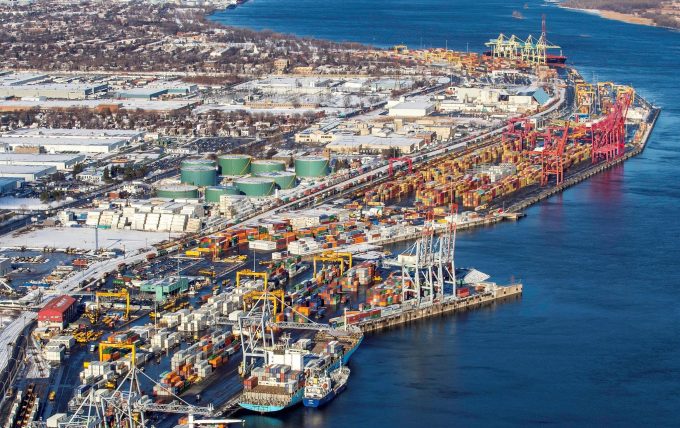Ripples from Trump tariff threat rocking boats in the neighbourhood
The prospect of Donald Trump back in the White House imposing heavy tariffs appears to ...
FDX: ABOUT USPS PRIVATISATIONFDX: CCO VIEWFDX: LOWER GUIDANCE FDX: DISRUPTING AIR FREIGHTFDX: FOCUS ON KEY VERTICALFDX: LTL OUTLOOKGXO: NEW LOW LINE: NEW LOW FDX: INDUSTRIAL WOESFDX: HEALTH CHECKFDX: TRADING UPDATEWMT: GREEN WOESFDX: FREIGHT BREAK-UPFDX: WAITING FOR THE SPINHON: BREAK-UP ALLUREDSV: BREACHING SUPPORTVW: BOLT-ON DEALAMZN: TOP PICK
FDX: ABOUT USPS PRIVATISATIONFDX: CCO VIEWFDX: LOWER GUIDANCE FDX: DISRUPTING AIR FREIGHTFDX: FOCUS ON KEY VERTICALFDX: LTL OUTLOOKGXO: NEW LOW LINE: NEW LOW FDX: INDUSTRIAL WOESFDX: HEALTH CHECKFDX: TRADING UPDATEWMT: GREEN WOESFDX: FREIGHT BREAK-UPFDX: WAITING FOR THE SPINHON: BREAK-UP ALLUREDSV: BREACHING SUPPORTVW: BOLT-ON DEALAMZN: TOP PICK

Employers at Canada’s port of Montreal have submitted what they call their “final, comprehensive” offer to end the dispute with dockworkers that has seen operations hobbled for over a week.
The Maritime Employers Association (MEA) has offered a cumulative salary increase of more than 20% over six years, and has requested a response from the Longshoremen’s Union, CUPE Local 375, by 8pm on Sunday.
The association said: “To acknowledge the valuable contribution of its employees and their families, the MEA’s final offer provides a 3% salary increase per year for four years. It also includes a 3.5% increase for the two subsequent years, retroactive to the beginning of 2024.
“When the contract expires, the total average compensation of a longshore worker at the port of Montreal will be more than C$200,000 (US$143,790) per year.”
Furthermore, it noted that the proposed increases would also apply to the current pension plan and benefits.
However, it warned that without agreement to the offer, only essential services and activities unrelated to long-shoring would continue at the port after 9pm on Sunday.
Port operations at Montreal have been “experiencing a major slowdown” since 31 October, the dispute focusing on the two container terminals operated by Termont, responsible for some 40% of volumes.
According to the eeSea database, there are currently four vessels waiting at anchorage and one at berth. The port authority said: “These activities require only 45 longshore workers to complete the tasks on the docks, since volumes have dropped significantly.
“The longshore workers’ multiple strikes… affect not only operations, but also, more importantly, public safety and the entire Quebec and Canadian economy, by depriving thousands of businesses and consumers of essential goods.”
Comment on this article